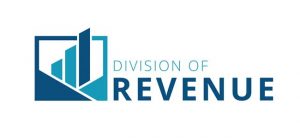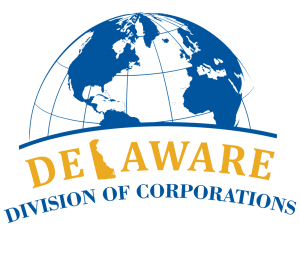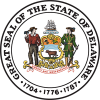Keeps core commitments to supporting job growth education, public safety and healthcare while maintaining fiscal responsibility in challenging budget
Dover, DE – Governor Jack Markell today unveiled a balanced Fiscal Year 2018 budget proposal that promotes increased job and educational opportunities for Delawareans, while maintaining fiscal responsibility that has repeatedly earned the state a AAA rating. The budget appropriates 98 percent of available revenues and sustains a fully funded Rainy Day Fund while upholding the Governor’s core commitments to schools, public safety and healthcare, and focusing on maintaining the work that has led to the State’s ranking as the third strongest economy in the country.
“The budgets we have enacted during the past eight years have been critical to supporting the strongest job growth in the region, great educational opportunities from early childhood through college for thousands more students, and a higher quality of life for all Delawareans,” said Governor Markell.
“This proposal shows that we can continue to invest in our progress, while still addressing the serious challenges that have resulted from unsustainable budget growth in a few areas and revenue sources that don’t increase when the economy improves. There is no sugarcoating that hard decisions are needed to make our budget sustainable and responsible over the long-term, but if we continue to focus on the investments that have the greatest impact on the current and future prosperity of all Delawareans, our state will thrive for years to come.”
As detailed below, the Governor’s budget recommendations would continue to strengthen Delaware schools, which have seen record-high graduation rates, a dramatic increase in access to high-quality early childhood programs, and tremendous growth in students earning college credits, industry credentials, and workplace experience before they graduate. The proposal also builds on successful economic development efforts, including the Downtown Development District program, which has leveraged $17 million in public funds into $330 million in private investments, and quality of life initiatives, while promoting other key priorities.
While keeping these commitments to Delawareans, the budget uses a mix of spending cuts and revenue increases to address the systemic challenges that have resulted in a $350 million shortfall. That deficit is based on the most recent revenue estimates for Fiscal Year 2018 and cost drivers that are increasing the size of the budget, including programs supported last year with one-time special fund resources.
“Our state’s encouraging economic growth has meant solid revenue growth in areas like personal income tax, but, unfortunately, much of our revenue portfolio is not tied to the economy’s performance,” said Secretary of Finance Tom Cook. “The revenue changes we propose adhere closely to the recommendations of the recent bipartisan revenue task force which established a blueprint for reshaping state revenues to better grow with the economy.”
Keeping Commitments to Strengthening Public Schools
The budget proposes an increase in public education funding, including: $28.4 million for 333 new teacher units to meet the demands of increased enrollment in public schools and $9.2 million for salary step increases for employees in Public Education.
The budget also continues the State’s commitment to provide access to quality early learning programs. The Governor proposes $8.0 million in additional funding for Early Childhood initiatives. These funds will be allocated for growth in 3, 4 and 5 Star-rated programs entering or progressing in the Delaware Stars program. These initiatives have resulted in an increase from five to 70 percent of low-income children attending high-quality programs.
The Governor has proposed $7.5 million to support recommendations of the Wilmington Education Improvement Commission to improve opportunities for underserved Wilmington students. Funding would provide additional resources to address the needs of low-income students in the Red Clay and Christina School Districts, including English Language Learners (ELL), and establish a Wilmington Redistricting Fund to support continued transition and implementation of a plan to give Wilmington residents the ability to better engage in their schools.
Spurring Economic Development and Improving Quality of Life
The Governor’s budget continues efforts to invest in economic development that creates jobs for Delawareans. The recommended budget includes:
- $8.5 million to promote economic activity in designated Downtown Development Districts. Established in Fiscal Year 2015, this program strengthens and enhances downtown areas by subsidizing rehabilitation and construction up to 20 percent of the total project cost. Currently, eight downtowns have been designated to receive funding: Wilmington, Smyrna, Dover, Harrington, Milford, Georgetown, Seaford and Laurel.
- $10.0 million for the Delaware Strategic Fund to provide targeted financial assistance to businesses.
- $15.0 million for infrastructure improvements at the Port of Wilmington.
- $2.9 million for the Riverfront Development Corporation.
- $2.5 million to the National Institute for Innovation in Manufacturing Biopharmaceuticals. This will focus on bringing safe drugs to market faster and creating quality jobs for the citizens of Delaware.
- $1.5 million for the Fraunhofer Center for Molecular Biotechnology (CMB) Vaccine Development. This funding is intended to create high-tech, high-impact jobs, spin-off businesses, new partnerships and alliances, and enable CMB to leverage its unique technologies in the biotech marketplace.
- $1.0 million for the Bioscience Center for Advanced Technology. The Center fosters academic industry research partnerships to support local bioscience businesses and help Delaware recruit, retain and create science-based jobs.
Improving Quality of Life
The Governor’s budget continues efforts to improve the quality of life in Delaware’s communities. The recommended budget includes:
- $9.6 million for the Housing Development Fund which is utilized to create and improve affordable rental housing stock and increase economic activity.
- $5.8 million for libraries including Duck Creek, Selbyville, Route 9/13, Harrington and Millsboro. Since Fiscal Year 2010, $44.6 million has been dedicated to library construction and the state has invested in the library system over the past eight years more than during any previous administration.
- $4.8 million for redevelopment of strategic sites at NVF in Yorklyn and Fort DuPont in Delaware City.
- $2.5 million to continue the Governor’s efforts to improve quality of life through statewide trails and pathways, a network of which has increased by more than 50 miles during his term.
Ensuring Public Safety
The Governor’s budget also makes important investments in the area of public safety, which include:
- Continued upgrades of the 800 MHz public safety communications system, with $6.4 million allocated in the Recommended Capital Budget to support an upgrade of the infrastructure to the national P-25 interoperability standard, while also replacing transmitters, microwave and older end-user portable and mobile radio equipment.
- Initial funding of $12.8 million for the construction of a new Troop 7 in Lewes.
Continued Commitment to Fighting Addiction Epidemic
The Fiscal Year 2018 Recommended Budget allocates $2.0 million of additional funding for the treatment of substance use disorders, including the creation of an Assertive Community Treatment team, expanded day services and for additional sober living beds.
Sustaining Responsible State Finances with Mix of Revenue Increases and Spending Reductions
“This balanced plan takes key steps toward structurally resolving the budget deficit not only for Fiscal Year 2018, but also by better positioning Delaware for the future,” said Governor Markell
To close a $350 million shortfall and put the state on a path to sustainable budgets in the long-term, the proposal includes some increases in personal income tax by limiting deductions and raising the rate of the top tax bracket by 0.2 percent. In addition, the Governor recommends an adjustment to the corporate franchise tax, increasing the State assessment on realty transfer tax, and an increase in the cigarette tax. Details can be found in the administration’s budget presentation and total a $212 million increase for the coming fiscal year.
Spending reductions include measures to address the unsustainable growth of state employee health benefits and property tax subsidies, both areas Governor Markell has stressed in previous budget proposals that the State can no longer afford to fund at the same rate as in the past, given skyrocketing health care costs and major increases in use of the property tax subsidy.
To improve the long-term viability of state employee health care plans, while ensuring state workers have access to high quality care, the recommendations include a new plan for all employees hired on or after January 1, 2008; implementation of deductibles for all plans (some currently have none); elimination of the health insurance premium preference for two state employees who are married (Double State Share); and elimination of the contribution inequity for pensioners on the Special Medicfill prescription plan.
More information is available in the administration’s budget presentation slides.
Final Budget Totals
The Governor has recommended a balanced plan, which includes a combination of expenditure reductions and additional revenues. The proposed Fiscal Year 2018 Recommended Operating Budget totals $4,128.4 million. The proposed Fiscal Year 2018 Recommended Bond and Capital Improvements Act totals $555.3 million and includes $270.5 million in state agency capital projects and $284.7 million in Transportation projects. The Governor also set aside $30.0 million for Grants-in-Aid.
A power point of the proposal is available online: http://budget.delaware.gov/budget/fy2018/documents/budget-presentation.pdf



